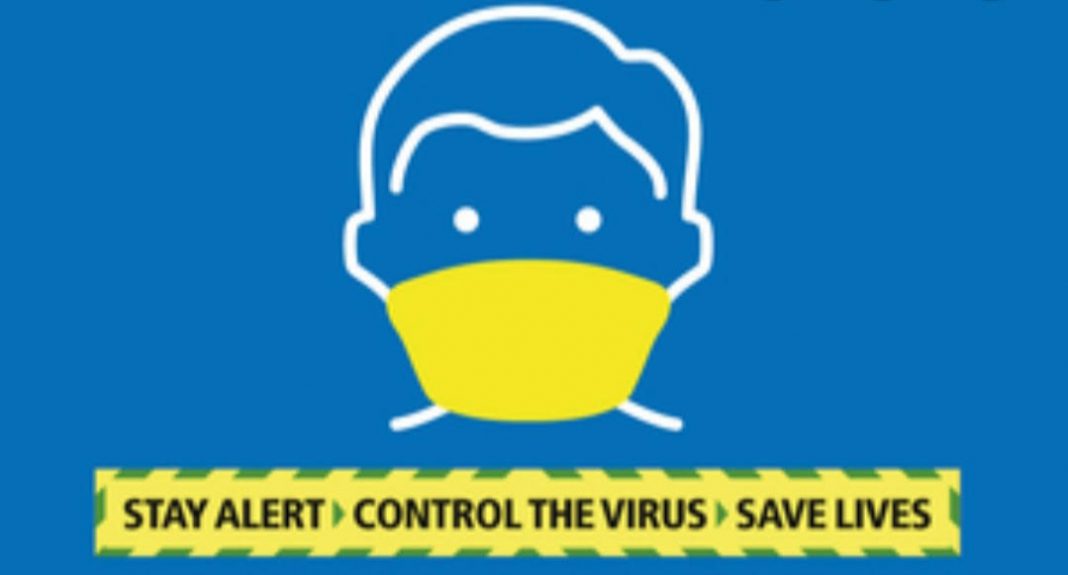In England, from 24 July, the wearing a face covering will become mandatory in shops and supermarkets. Shoppers who fail to comply risk a £100 fine. The new law requires the wearing of cloth face coverings rather than medical masks.
This change is made under the Public Health (Control of Disease) Act 1984. While shop employees should encourage compliance, businesses will not be expected to enforce the policy. Enforcement will be a police responsibility. This change comes after a series of mixed messages from ministers last weekend.
Only young children (under 11), individuals with certain disabilities (such as breathing difficulties) and those who need to lip read, will be exempt from the new regulations. Those who find it “reasonably necessary” to eat or drink can remove the face covering to do so.
The chief medical officer has said that “The whole point about face coverings is that they represent another level of mitigation and add to social distancing and the importance of hygiene measures.”
These new regulations for England will be added to existing guidance and apply to ‘all shops’, but not pubs and restaurants. The British Retail Consortium has asked for more ‘clarity’ about enforcement, as retailers will be expected to advise customers to comply, but the practicalities of dealing with those who do not is unclear.
But how will this be enforced ?
The Metropolitan Police Federation has said that the enforcement was ‘nigh on impossible’, adding ‘we can’t have police outside every shop.’ They suggest that it would take a “cooperative effort”; the National Police Council has suggested that police involvement should be a “last resort”, with retailers handling initial enforcement. Certainly in Rye, one might be sceptical about a Sussex Police presence for enforcement.
Others have expressed concern that face coverings might create a false sense of security leading people to neglect social distancing measures and regular handwashing. Importantly, face coverings must be used effectively in order to avoid self contamination. The government has issued guidance on how to make and wear your own face covering.
While face coverings can help reduce transmission via nose and mouth, some ask about infection through the eyes. Work at the Harvard Medical School, suggests that “Any sort of open mucous membrane provides a pathway for droplets to enter the body. While it is known that the virus can be transmitted through the eyes, Harvard has reported that it is hard to quantify the risk. The NHS suggests that eye protection is a sensible additional precaution and provides its own staff with eye protection.
Last week I reported research indicating the risks from aerosol transmission – micro droplets hanging in still air in enclosed spaces – which is now cited in many studies as the third main means of transmission. The first two are by direct transmission of virus droplets and via virus left on hard surfaces, subsequently transferred to the mouth or nose by handling. The World Health Organization (WHO) is still considering this aerosol path but now recommends face coverings as an aid to help prevent the spread of the virus.
Masks help when distancing is difficult
The president of the Royal Society has said that everyone should have a face covering to help tackle the pandemic, citing particular evidence from the universities of Cambridge and Pennsylvania and from research convened by the Royal Society that has looked at the effectiveness of different face mask types and coverings. This evidence reinforces the benefits of face coverings.
He has said that alongside hand washing and physical distancing, “we need everyone to start wearing face coverings, particularly in enclosed public spaces where physical distancing is often not possible.”
The change in government policy comes as other aspects of the pandemic are reported.
- The health secretary reports that 100 outbreaks of coronavirus in schools, businesses and pubs are being tackled every week across the UK
- Public Health England (PHE) reports hotspots where numbers of infected are rising. Near Rye, those listed are Ashford, Folkestone, Hythe, Eastbourne and Crawley
- Air-conditioning units that have been dormant during lockdown present a breeding ground for another infection – Legionnaires’ disease.
Across the Rye and district area supported by Rye Mutual Aid (RMA) concerns about the pandemic are retained by some vulnerable people who are still self isolating. For these, the crisis has been and will continue to be frightening. In addition to delivering food or prescriptions, RMA remains at the forefront of a local effort to provide and champion the use of face coverings. Offers of support or requirements can be fed through the Facebook page.
Image Credits: UK Government .




Are Face Shield Visors allowed as a substitute? Apart from breathing, masks are not especially hygienic if worn for long periods.
Face shields, combined with social distancing and hygiene measures, can help reduce transmission. We have found no extensive studies from which to draw but some research in the US suggests that faceshields can help reduce reception and transmission of droplets.
All face coverings should be changed (single use) or washed (cloth) at regular intervals.